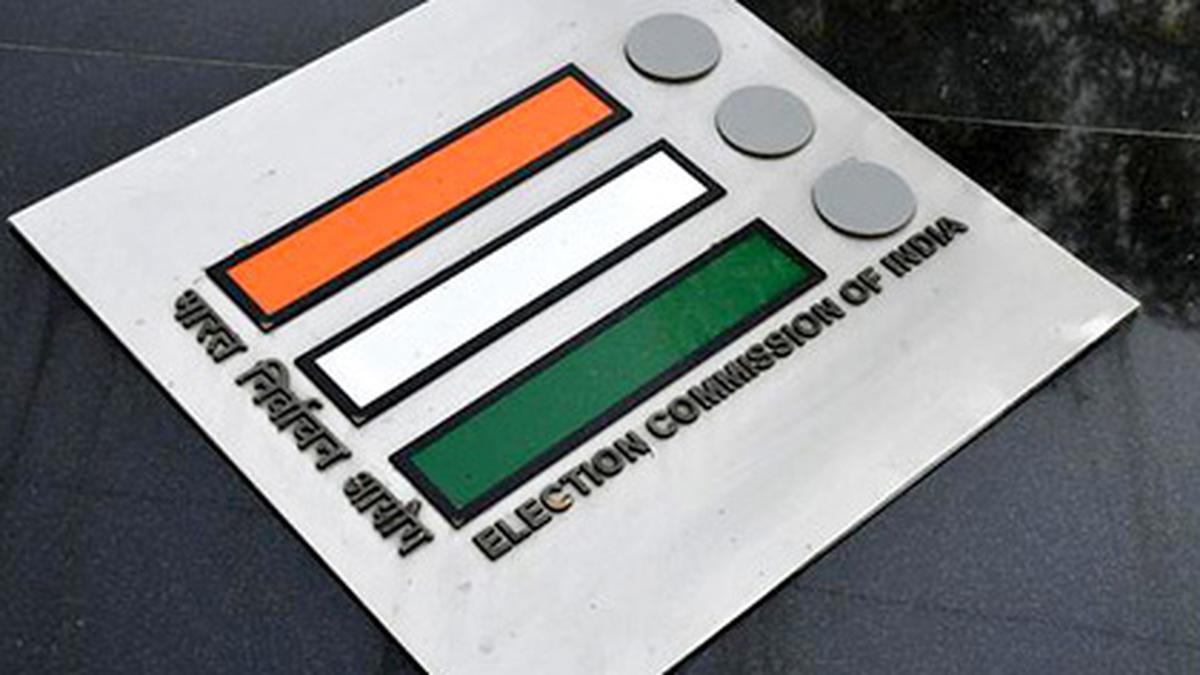
Telangana Assembly polls | ECI to visit State on Oct. 3 to assess poll preparedness ahead of announcement of schedule
The Hindu
ECI to team visit Hyd to assess poll preparedness. Team to engage with stakeholders, interact with local community.
A team of Election Commission of India officials is scheduled to visit the State for three days from October 3.
The team comprising senior officials will engage with various stakeholders and assess the poll preparedness of the State besides interacting with the local community during the visit. Though the visit is seen as a routine one, indications are that the ECI team is coming to make a thorough assessment of the State’s poll preparedness ahead of announcement of the schedule for the ensuing Assembly elections.
It may be recalled that the schedule for the Assembly polls in 2018 was announced on October 6 followed by the issue of notification on November 12 and polling on December 11. The term of the current Assembly is scheduled to end on January 17.
“The team will review all aspects relating to the conduct of the election. They may set deadlines for completion of certain works which in their view are pending and also give instructions relating to measures that should be taken to bridge the gaps, if any,” a senior official told The Hindu. The Chief Electoral Officer has intensified efforts over the past few weeks to put in place the necessary measures for smooth conduct of the election and officials feel that minor works, if any, could be completed well within time.
The visit, according to the Chief Electoral Officer’s office, will start with a crucial meeting involving national and State recognised political parties as well as enforcement agencies on the first day to discuss key matters relating to upcoming Assembly elections. The focus on the second day would be the assessment of poll preparedness at the grass root level with the district election officers, superintendents/commissioners of police making detailed presentation to the ECI team on the poll preparedness.
This would be followed by an exhibition showcasing the Systematic Voters’ Education and Electoral Participation (SVEEP) activities on the third day. The team would also convene a crucial meeting with the Chief Secretary and Director General of Police the same day to align their efforts with the State administration and the security agencies.

“Writing, in general, is a very solitary process,” says Yauvanika Chopra, Associate Director at The New India Foundation (NIF), which, earlier this year, announced the 12th edition of its NIF Book Fellowships for research and scholarship about Indian history after Independence. While authors, in general, are built for it, it can still get very lonely, says Chopra, pointing out that the fellowship’s community support is as valuable as the monetary benefits it offers. “There is a solid community of NIF fellows, trustees, language experts, jury members, all of whom are incredibly competent,” she says. “They really help make authors feel supported from manuscript to publication, so you never feel like you’re struggling through isolation.”

Several principals of government and private schools in Delhi on Tuesday said the Directorate of Education (DoE) circular from a day earlier, directing schools to conduct classes in ‘hybrid’ mode, had caused confusion regarding day-to-day operations as they did not know how many students would return to school from Wednesday and how would teachers instruct in two modes — online and in person — at once. The DoE circular on Monday had also stated that the option to “exercise online mode of education, wherever available, shall vest with the students and their guardians”. Several schoolteachers also expressed confusion regarding the DoE order. A government schoolteacher said he was unsure of how to cope with the resumption of physical classes, given that the order directing government offices to ensure that 50% of the employees work from home is still in place. On Monday, the Commission for Air Quality Management in the National Capital Region and Adjoining Areas (CAQM) had, on the orders of the Supreme Court, directed schools in Delhi-NCR to shift classes to the hybrid mode, following which the DoE had issued the circular. The court had urged the Centre’s pollution watchdog to consider restarting physical classes due to many students missing out on the mid-day meals and lacking the necessary means to attend classes online. The CAQM had, on November 20, asked schools in Delhi-NCR to shift to the online mode of teaching.









